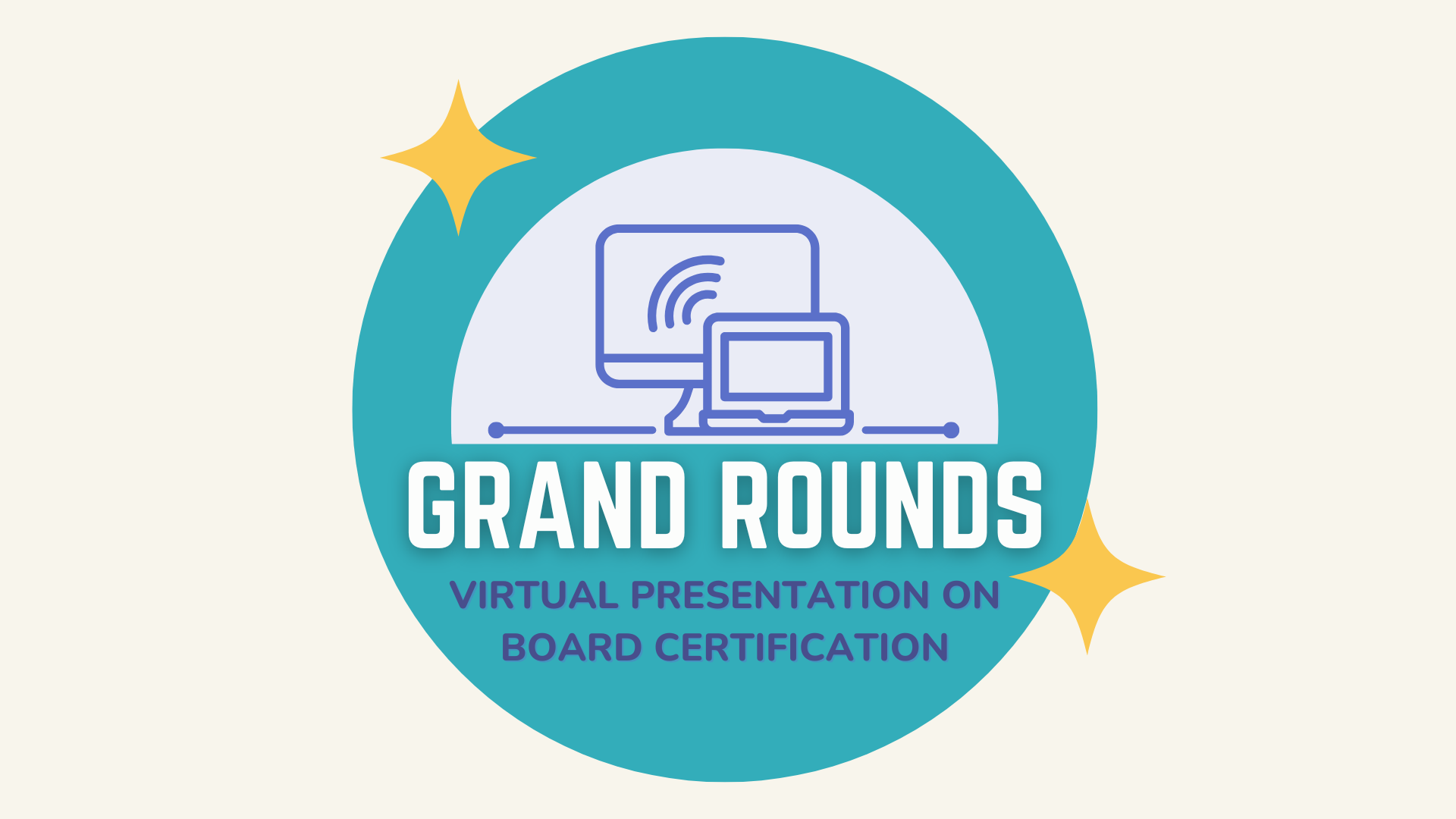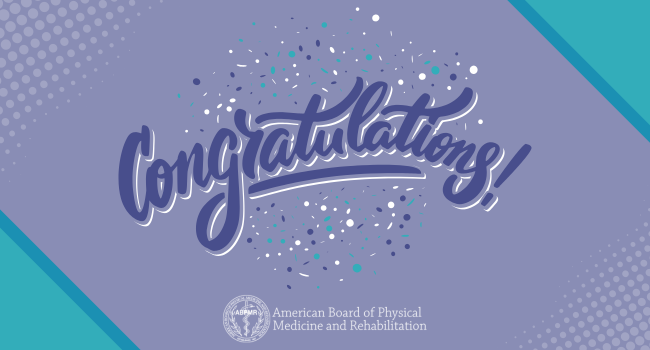Primary Certification
New Videos: Examiner Advice
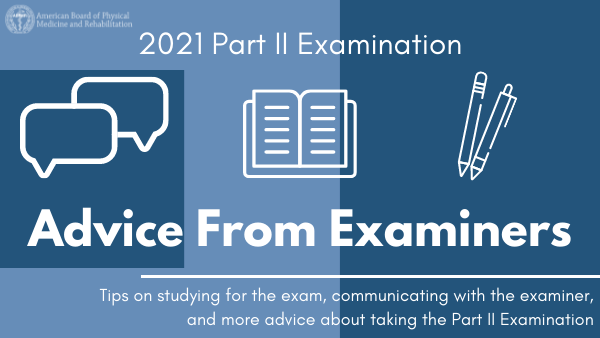
ABPMR examiners have experienced the Part II Examination as both a candidate and an examiner; this unique perspective can be helpful in giving exam candidates advice on the best ways to study, what to expect from an examiner, timing of the exam, and more. See their exam advice for candidates below!
Dr. Maya Evans' simple but number one tip for the Part II Examination is to show your work. Your examiner wants to hear how you arrived at your answers, so talk out your reasoning and the "why" behind your answers during the exam. Dr. Evans also reminds candidates that examiners are trained to not give any verbal or non-verbal feedback during the exam.Dr. Michelle Gittler recommends preparing for the exam by presenting and explaining cases to a fellow physician friend or colleague. By practicing with a physician, you will get valuable feedback on how clear and comprehensive you were in explaining cases.
Dr. Kevin Krafft gives advice for sharing thoughts and ideas during the exam. He reminds candidates that you analyze, diagnose, treat, and communicate each day as a physician—the exam is a chance to demonstrate what you know and do every day.
Dr. Bob Rinaldi explains what prompts you might hear from your examiner during the exam. Dr. Rinaldi also recommends organizing your thoughts for the exam by approaching each case the same way you would approach a consult.
Dr. Phoebe Scott-Wyard reminds candidates that the examiner is there to help you. They may interrupt or prompt you throughout the exam to help you demonstrate your knowledge to the best of your ability. Dr. Scott-Wyard also recommends preparing with a physician friend or colleague to practice being a patient and examiner by talking through cases.
Dr. Thiru Annaswamy's advice for candidates is to follow the examiner's lead. They've been trained on how to take you through the exam and keep track of time; you will be prompted to expand on your thoughts or add more details if needed.
Dr. David Lin explains how nervous he was on his exam day (remember examiners have taken the exam as a candidate, so they relate to how you might be feeling). Dr. Lin also reminds candidates that passing the Part I Examination showed you know the medical knowledge needed in PM&R, and this exam is about demonstrating you know how to apply that knowledge. Remember that examiners are working to help you pass and aren't trying to trick you. Listen to their prompts and do your best to give a thorough answer.
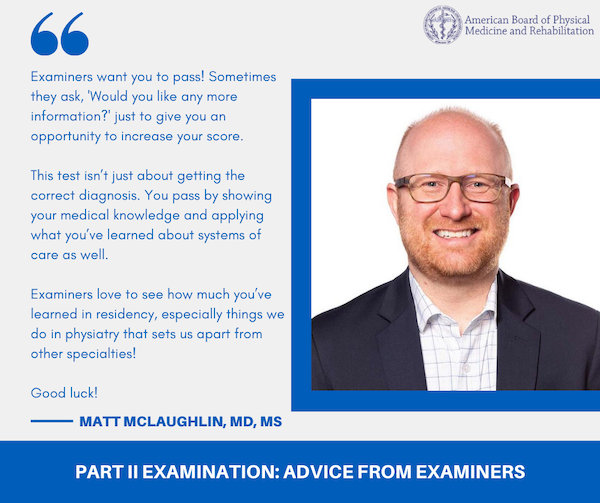
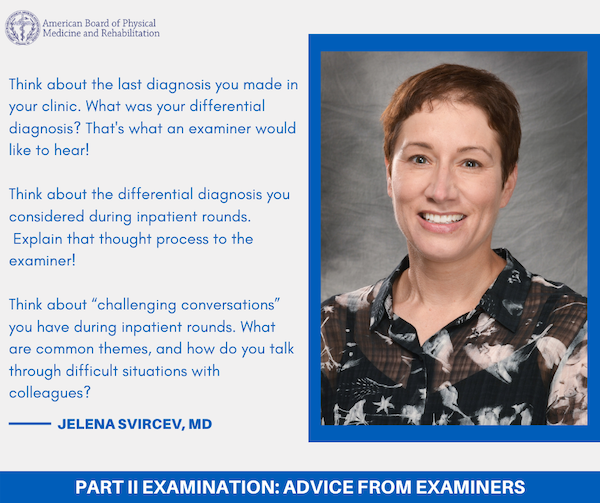
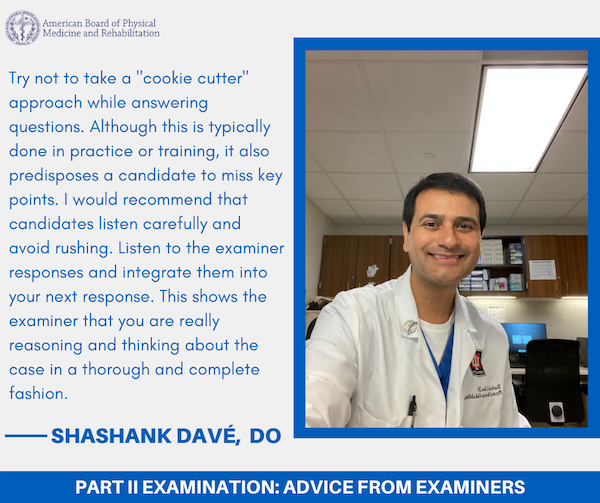
Originally Published: May 04, 2021
